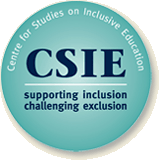
supporting inclusion, challenging exclusion
The European Social Charter and the Revised Social Charter
in a nutshell
The Charter (1961) and the Revised Charter (1996) guarantee social and economic rights. Articles 9, 10, 15 and 17 cover the right to education and vocational training, with the provisions in the Revised Charter strengthening the emphasis on social inclusion and participation. Article E in the Revised Charter confirms the right to non-discrimination.
Implementation of the Charter
States which have ratified the Charter(s) submit reports on implementation. The European Committee of Social Rights decides whether or not the situation conforms to the Charter. Not all articles are examined in every report: core provisions are reported every two years, and others every four years. There is also a ‘collective complaints’ system under a protocol to the Charters which allows certain organisations to make specific complaints about a state in breach of the Charters.
View the extracts concerning inclusive education from the conclusions of the European Committee of Social Rights, 2003-2008:
The European Social Charter (1961) and the Revised Social Charter (1996) are Council of Europe treaties. The Council of Europe’s disability strategy for 2006-2015 makes it clear that education for disabled children should be directed towards full inclusion.
The main article in the European Social Charter relating to the education of disabled children and young people is article 15. Articles 9, 10 and 17 are also relevant, since all provisions of the Charter are applicable to disabled people.
Article 9 (the right to vocational guidance) states:
With a view to ensuring the effective exercise of the right to vocational guidance, the Contracting Parties undertake to provide or promote, as necessary, a service which will assist all persons, including the handicapped, to solve problems related to occupational choice and progress, with due regard to the individual’s characteristics and their relation to occupational opportunity: this assistance should be available free of charge, both to young persons, including school children, and to adults.
Article 10 (the right to vocational training) states:
With a view to ensuring the effective exercise of the right to vocational training, the Contracting Parties undertake:
1. to provide or promote, as necessary, the technical and vocational training of all persons, including the handicapped, in consultation with employers’ and workers’ organisations, and to grant facilities for access to higher technical and university education, based solely on individual aptitude....
Article 15 (the right of physically or mentally disabled persons to vocational training, rehabilitation and social resettlement) states:
With a view to ensuring the effective exercise of the right of the physically or mentally disabled to vocational training, rehabilitation and resettlement, the Contracting Parties undertake:
1. to take adequate measures for the provision of training facilities, including, where necessary, specialised institutions, public or private....
In the Revised Charter, article 15 is amended to reflect the importance of social integration and participation in community life, new paragraphs are added to article 17 relating to education for children, and a new article E on non-discrimination has been added.
Article 15 (the right of persons with disabilities to independence, social integration and participation in the life of the community) states:
With a view to ensuring to persons with disabilities, irrespective of age and the nature and origin of their disabilities, the effective exercise of the right to independence, social integration and participation in the life of the community, the Parties undertake, in particular:
1. to take the necessary measures to provide persons with disabilities with guidance, education and vocational training in the framework of general schemes wherever possible or, where this is not possible, through specialised bodies, public or private....
Article 17 (the right of children and young persons to social, legal and economic protection) states:
With a view to ensuring the effective exercise of the right of children and young persons to grow up in an environment which encourages the full development of their personality and of their physical and mental capacities, the Parties undertake, either directly or in co-operation with public and private organisations, to take all appropriate and necessary measures designed:
1. a. to ensure that children and young persons, taking account of the rights and duties of their parents, have the care, the assistance, the education and the training they need, in particular by providing for the establishment or maintenance of institutions and services sufficient and adequate for this purpose; ...
2. to provide to children and young persons a free primary and secondary education as well as to encourage regular attendance at schools.
Article E (Non-discrimination) states:
The enjoyment of the rights set forth in this Charter shall be secured without discrimination on any ground such as race, colour, sex, language, religion, political or other opinion, national extraction or social origin, health, association with a national minority, birth or other status.
Page last updated: Wednesday 08 November 2023